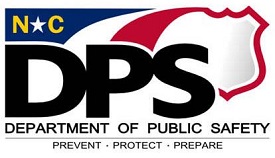
Special to Iredell Free News
RALEIGH — North Carolina National Guard’s (NCNG) Cyber Security Response Force (CSRF) has worked around the clock to protect networks related to the election process in North Carolina, ahead of and during the general election.
The team, made up of Army and Air Guardsmen, has worked with their department lead, the N.C. Department of Public Safety (DPS), as well as the Division of Emergency Management (NCEM), N.C. Department of Information Technology (NCDIT), the State Bureau of Investigation, the Department of Homeland Security, FBI, and U.S. Cyber Command to monitor systems for malicious activity.
“We greatly appreciate the assistance of the North Carolina National Guard and all of our state and federal partners in monitoring our election infrastructure,” said Karen Brinson Bell, executive director of the State Board of Elections. “Successful elections take a team effort, and they are integral members of our election security team.
In 2017 the Department of Homeland Security (DHS) identified election infrastructure as critical infrastructure.
”The Department of Public Safety has been working tirelessly to ensure the safety and security of the 2020 General Election,” DPS Secretary Erik A. Hooks stated. “To ensure the state public safety and cybersecurity apparatus remains appropriately positioned to respond to a variety of threats surrounding the elections, a multi-faceted all-hazards approach to preparedness and response was utilized. The combined team within DPS that includes the NCNG Cyber Unit, Emergency Management Cyber Unit, and homeland security experts, as well as its local, state and federal partners is well positioned to respond quickly and decisively to address threats and incidents potentially affecting our election infrastructure before, during and after election day.”
NC Guard’s primary role is to monitor security systems for the State Board of Elections to receive timely information to defend their network.
“We’re looking at everything that’s happening on the networks, and we’re identifying if there’s anything that should be there so we can go ahead and essentially stop it or prevent it from occurring in the first place,” said NC Guard’s CSRF team leader, Capt. Alexander Reinwald. “To us, a successful mission means that our state and county networks are protected from malicious activity and network disruptions so that we can maintain the integrity of the electoral process.”
The CSRF and NCDIT can provide services and assistance, both proactive and reactive, whenever there’s a cyber incident in the state, according to the State Chief Risk and Security Officer with the NCDIT, Maria Thompson.
“Without [the NCNG] it’s safe to say that we would definitely have a deficit within the state,” Thompson said. “It’s crucial that we have this partnership, and they are part of the team that helps to secure our elections infrastructure.”
This is not the first time the CSRF has worked with NCDIT and NCEM. They have worked together to support the State Board of Elections and other agencies with five elections before this one and have trained together during events like the one involving K-12 school systems in early October of this year.
“Working with state partners before events happen helps us be more proactive,” Thompson said.
“Whether it’s K-12 or a local county, getting to know who those people are and building those relationships as well as understanding what their networks look like and what type of systems they have helps us to understand, if there is an incident, what to expect.”
The NC Guard and the rest of the state’s cyber force will be on duty for the next few days at a minimum.
“We are very fortunate to have a highly trained and professional cyber team which helps guard the infrastructure and networks keeping our citizens safe,” said Maj. Gen. Todd Hunt, adjutant general of North Carolina.
Capt. Reinwald says the team’s ability to build lasting relationships is because they are not just N.C. Guardsmen, but also North Carolina citizens with most on the team having IT jobs in their civilian careers.
“Because we’re in the guard and we’re all from the communities that we’re working to protect, we have the ability to build and establish long term relationships with the counties and the state networks,” Reinwald said. “Because this is our home state, we have a vested interest in protecting it and working with the community leaders. When this election is over, the job’s not done, it’s a whole process, and we’re going to continue working to secure the networks of our state, local, and county infrastructure.”
NC Army National Guard Capt. Steven Schmidt, the CSRF Chief Deputy who also serves as the commander for the 29th Signal Company, compares the event to a marathon; after a lot of hard work and excitement, they will simply cross the finish line, and it will be over.
“It’s very exciting to be a part of this because it’s [elections] an important process,” Schmidt said. “A year down the road, when we’re looking back at everything that happens today after the 3rd of November, and just having a very boring week is what we want to see. The more boring, the better.”



